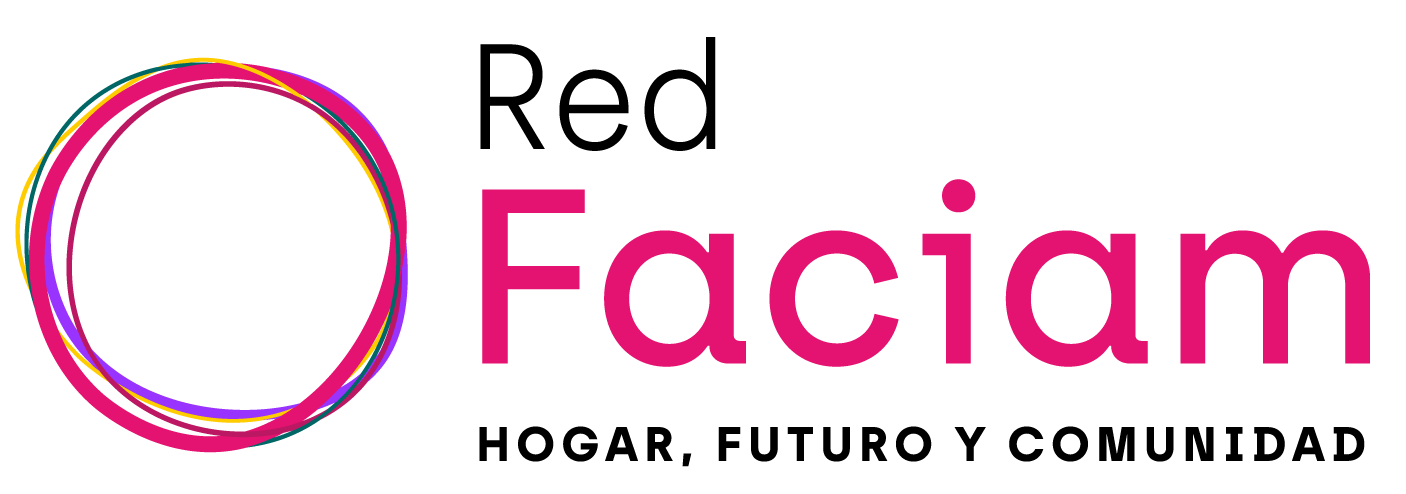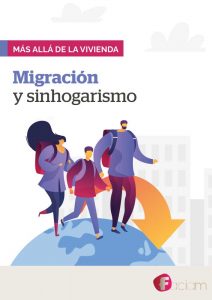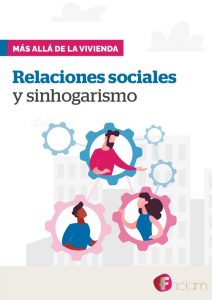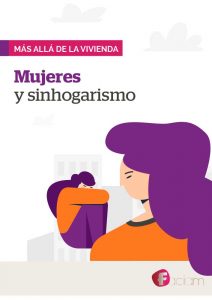
Faciam
FACIAM is a statewide network of 18 social and non-profit organizations that share a humanistic vision of society. We are dedicated to collaborating with people who are homeless or in a situation of residential exclusion in order to create opportunities for their social incorporation. Our raison d’être is to unveil situations of injustice and inequality, to give visibility to people who are homeless and to promote their access to rights and community.
Our principles
Three premises constitute the essential axes of our action and around them we build our inspiring principles:
Comprehensiveness
The explanation, description, understanding and, therefore, social intervention in homelessness is multifactorial, systemic and involves a framework of complex personal, social, political, situational and structural variables… that must be understood, weighed, systematized and incorporated into the catalog of social intervention proposed in each case.
Complementarity
FACIAM’s services are developed in a complementary, coordinated manner, attending to diverse needs, from the emergency approach to the accompaniment of the processes.
Rights approach
We defend the respect, protection and guarantee of rights as the basis for making possible the inclusion of people. All people must be able to legally defend and demand their rights.
Person
The practice of social intervention requires focusing on the person, on the development of his or her capacities and on decision-making about his or her recovery process, which must take place in a context of responsible freedom. This implies the flexibilization of interventions and the conditionality of support, as opposed to services and the intermittency of support.
The person at the center
We plan interventions tailored to the needs, desires and rights of each individual. They are best able to identify their needs and make decisions about the support they need to meet them.
Intersectionality
We are committed to providing respectful and safe accompaniment, depending on the particular circumstances of each person related to cultural difference, gender, mental health, gender identity and sexual orientation, among others.
Flexibility in processes
We offer initiatives and services characterized by the flexibility and adaptability of our actions to the specific and unique needs of each person. The rhythms, specific needs and desires of individuals are at the center of the intervention.
Decision making
We advocate that people have the right to be the protagonists of their lives, to make their own decisions, to actively participate in care plans and to maintain control of their lives at all times.
Community
The community, the living and social system, the informal support networks that accompany each person, in each territory and taking into account the existing enabling structures, are elements of reference for people, for the explanation of their socio-residential exclusion, but, above all, source and resource for their recovery process.
Safety and dignity
We relate to people through respect, empathy, understanding and active listening. We protect their privacy, guaranteeing their confidentiality. We are committed to generating safe itineraries and spaces, free of violence and fear, fostering relationships of respect and good treatment.
Voluntary Action
We believe that volunteer action and participation contribute to the integral development of citizenship and social transformation. We trust in the professionalism and commitment of volunteers and in the enrichment of the processes in which they participate.
Professionalism and experience
We propose initiatives and services based on experience, knowledge and active listening. We offer comprehensive care by having multidisciplinary professional teams.
Participation
We promote active participation in the design, development and evaluation of our initiatives and services. We understand people as active subjects of change who, based on their experiences and knowledge, can make valuable contributions to improve our practices. We are committed to the participation of people in their environment and in the social, cultural and political processes that contribute to the generation of networks, to strengthen the sense of belonging, coexistence, solidarity, change and the transformation of inequalities.
Mission
It is supported on 4 axes:
- FACIAM in front of itself – WE GENERATE AND MAINTAIN A NETWORK STRUCTURE, which allows us to organize ourselves internally, to strengthen each other in a complex and changing society.
- FACIAM at the service of its organizations – WE SUPPORT SOCIAL INTERVENTION with the homeless people of the entities of the network, through the promotion and development of programs and projects for the reception, accompaniment and itineraries of social incorporation.
- FACIAM in the reflection and thinking about homelessness – WE DEVELOP RESEARCH, TRAINING AND AWARENESS RAISING. We sensitize the social fabric and thus contribute to the process of transformation of social reality towards an inclusive human development. We generate knowledge about the realities that are shaping homelessness through studies, analysis and debate. We delve into the social and structural factors that generate it. We have an impact on the construction of responses and public policies based on prevention. We propose models and good practices to address homelessness with innovative proposals.
- FACIAM in the construction of the response to homelessness – WE DO ADVOCACY AND PARTICIPATE IN NETWORKS. We defend the rights of homeless people by promoting the involvement and coordination of all actors. Participating in platforms, networks and advocacy spaces at different levels, local, national and international to improve the coverage of public policies to the needs of citizens, paying special attention to the most vulnerable people in poverty or social exclusion.
Vision
Homelessness is a complex reality, the result of an increasingly unequal society that expels the weakest people and deprives them of opportunities to access their most basic rights. At FACIAM we believe that a society in which all people enjoy the physical, psychological and emotional protection provided by a decent, adequate and safe home from which to develop a full life is possible.
It is possible, if there is a common commitment from the whole of society: from the individual, which emphasizes the role of each person as an active member of it, to the political will, which is essential to carry out the necessary measures. We all have a role to play: people in a situation of residential exclusion who, with tailored support, can follow the necessary inclusion pathways; social entities, which accompany their inclusion processes with quality and warmth; public administrations, which in their local, regional, state and international dimension develop policies that protect the most vulnerable people; and society as a whole, by setting its sights, free of prejudices and stereotypes, on the full integration of excluded people.
Some data
18
Number of entities
8
Autonomous Communities
15594
Person served in 2023
1083
Number of volunteers
633
Number of employees
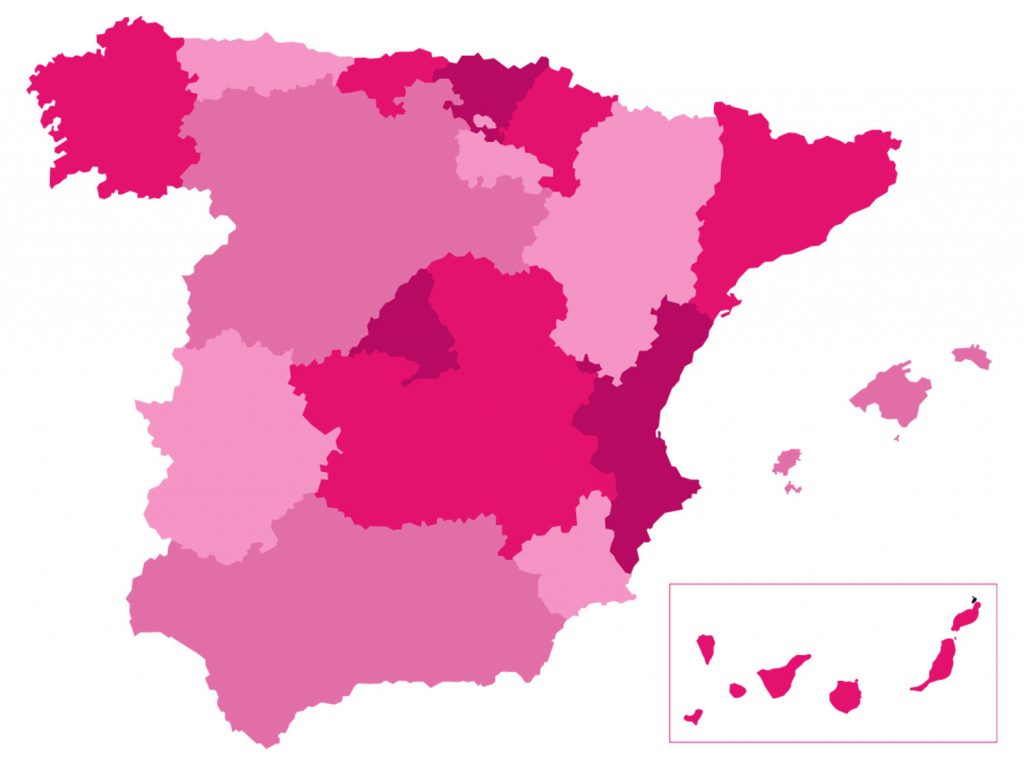
We are Network
We are united by the conviction that it is possible to eradicate homelessness and we work every day to do so. We put all our resources at the service of those who today are on the street to build their own future.
These are the new faces of exclusion: very young people, women, migrants and asylum seekers, LGTBI people, people with mental health problems, etc. We respond to all these realities as FACIAM Network through the generation of knowledge, projects, advocacy and awareness campaigns.
Internal organization
Board of Directors

Susana Hernández Ortiz
Chair

Soledad González Nicolás
Vice-Presidency

Xabier Parra Berrade
Vice-Presidency II

Julián Besteiro Reques
Secretariat

Elena Suero Caldevilla
Treasury

Jesús Álvarez Barcia
Vocalía

Isabel Tortajada
Vocalía
Technical Secretariat

Maria Elena Ayuso
Technical Secretariat
Our history
FACIAM was born in 1979, as an alliance of four organizations with a long history in the accompaniment of homeless people: Albergue San Juan de Dios, Centro de Información y Acogida de Cáritas Madrid (the current CEDIA24h), Fundación San Martín de Porres and the Damas Apostólicas (today, Luz Casanova), which already had a shelter for women, will be the founding entities of FACIAM.
We especially remember its promoters, visionaries and innovators in their time, Antonio Zarzosa, Brother de San Juan de Dios, now deceased, and Brother Ramiro Castrillo, a Dominican friar, who continues to work today, as on the first day, alongside the homeless, in the Shelter and in the projects of the San Martín de Porres Foundation. FACIAM, at its creation, brought together religious institutions that at that time were dedicated to accompanying people who were then called “transients and marginalized”.
Some milestones along the way:
- 1998 – From this moment on, a collaboration agreement is developed with the City Council of Madrid to be part of the network of care for homeless people, which is still in place today.
- 1988 – FEANTSA (European Federation of National Associations working with the homeless) is constituted, of which we are founding members, and which will be a reference since then, with studies, data, trends, methodologies.
- 1992 – We started the Homelessness Campaign. Annual statewide awareness campaign that continues to this day.
- 1993 – 1996 – We incorporate entities from the Principality of Asturias. We begin joint projects of social interest at the state level.
- 2010 – We started the edition of the annual Technical Seminars on homelessness, in line with the European campaign promoted by FEANTSA for the eradication of homelessness and published the reference decalogue document “10 proposals for a strategy to eradicate homelessness”.
- 2019 – We open a new line of research and knowledge generation, with the publication of the “Study of LGTBI homeless people in the community of Madrid”.
- 2021 – 2024 Entities from the territories of Catalonia, the Valencian Community, Castilla León and the Basque Country are incorporated.
- 2022 – We started to develop the innovation project “Futuro&Co” for the autonomy of young homeless people, with methodology and governance shared by 11 entities.
- 2024 – At present, 18 entities make up the FACIAM network, and territories from 8 Autonomous Regions are represented.
Acknowledgments

Recognition of the Madrid Social Samur for the Impulsa program (2023)
Program for the care of young people in a situation of residential exclusion

Good practice – European Network of Innovation for inclusion, to Futuro&Co program (2023)
Community-based social innovation project to empower homeless youths

Gold Medal of the City of Madrid (2017).

